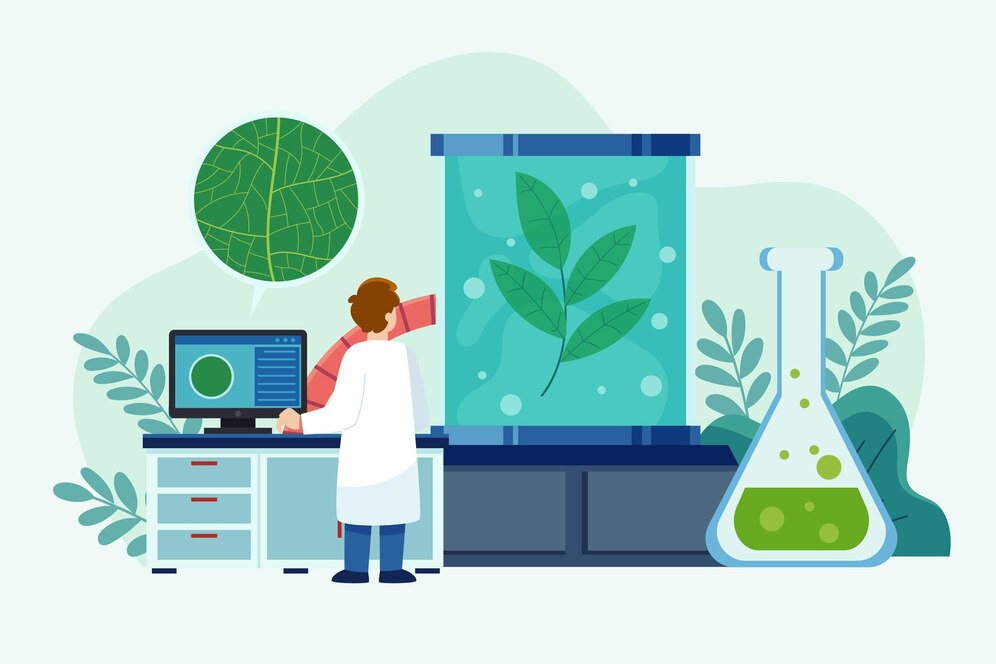In the ever-evolving landscape of career opportunities, agricultural science stands as a promising field with abundant prospects. It offers not only job security but also the chance to make a significant impact on the nation’s agrarian economy. If you are an aspiring student, wondering how to embark on a career in agricultural science in India after completing your 10th grade, this article is your comprehensive guide. We will discuss the subjects to choose, the steps to take after the 11th and 12th, the best colleges in India, the future of this field, and the responsibilities of professionals in this domain.
Table of Contents
Introduction
Agricultural science is not just about farming; it’s about using scientific techniques and technologies to enhance crop production, improve soil health, and contribute to food security. It’s a dynamic field with vast opportunities for those who are passionate about the agro-industry. Let’s dive into the steps to build a career in agricultural science.
Choosing the Right Subjects After 10th
Your journey towards a career in agricultural science begins with the choice of subjects after completing the 10th grade. You should opt for the science stream, which typically includes physics, chemistry, biology, and mathematics. These subjects provide the foundational knowledge and skills required for agricultural science.
The Path after 11th and 12th
After successfully completing your 10th-grade studies with the recommended subjects, the next step is to enrol in a 12th-grade program with the same subjects. It’s crucial to excel in your 11th and 12th-grade studies, as your performance in these years significantly impacts your eligibility for prestigious agricultural science institutions.
Top Colleges for Agricultural Science in India
India is home to several renowned institutions that offer agricultural science programs.
- Indian Agricultural Research Institute (IARI): Located in New Delhi, IARI is a leading institution in agricultural research and education.
- Tamil Nadu Agricultural University: This university is recognized for its high-quality agricultural education and research.
- Punjab Agricultural University: Situated in Ludhiana, PAU is a pioneer in agricultural education and technology.
These institutions offer various undergraduate and postgraduate programs, including B.Sc. in Agriculture.
The Future of Agricultural Science
The future of agricultural science in India is filled with promise and potential. The agricultural sector is undergoing a transformation, with a growing emphasis on sustainable and organic farming practices, biotechnology, and innovative approaches to boost agricultural productivity. This field provides job security, competitive salaries, and opportunities for research and innovation.
Roles and Responsibilities
Professionals in agricultural science are involved in a wide range of roles. They work as agricultural scientists, agronomists, soil scientists, agricultural consultants, and more. Their responsibilities include:
- Conducting experiments and field trials to improve crop yields.
- Analyzing data to optimize agricultural practices.
- Developing strategies for sustainable farming.
- Collaborating with farmers to implement best practices.
Skills Required
To excel in agricultural science, you need a diverse set of skills:
- Analytical Thinking: The ability to analyze data and solve complex problems is crucial in this field.
- Research Abilities: Agricultural scientists often engage in research, so strong research skills are essential.
- Effective Communication: Communicating research findings and recommendations to farmers and stakeholders is a vital aspect of the role.
- Technological Proficiency: Staying updated with the latest agricultural technologies and practices is imperative.
Internship and Practical Experience
Practical experience is integral to a career in agricultural science. Many agricultural science programs include internships that provide hands-on exposure to various aspects of the field. Internships often involve working on research projects, gaining practical experience in farming, and solving real-world agricultural challenges.
Research Opportunities
Agricultural science opens the doors to extensive research opportunities. As a student, you can engage in innovative projects, contribute to the development of new crop varieties, and find sustainable solutions to pressing environmental issues affecting agriculture.
Government vs. Private Sector Jobs
Agricultural scientists have the flexibility to work in both the public and private sectors. Government jobs offer stability and benefits, often within departments of agriculture, research institutions, and agricultural extension services. On the other hand, the private sector offers competitive salaries and room for entrepreneurial ventures in agriculture-related businesses.
Agricultural Entrepreneurship
For those with an entrepreneurial spirit, starting your own agricultural venture is a viable option. You can venture into organic farming, agri-tech startups, agricultural consultancy services, or even agricultural products and equipment supply businesses.
Technological Advancements
Agricultural science is at the forefront of technological advancements. The field continually evolves with cutting-edge innovations, such as:
- Precision Agriculture: Using technology to optimize crop management.
- Biotechnology: Developing genetically modified crops for enhanced yield and resilience.
- Drones and Remote Sensing: Utilizing drones and satellite imagery for precision farming.
Environmental Sustainability in Agriculture
In the face of environmental challenges, agricultural scientists play a pivotal role in promoting sustainable farming practices. This includes:
- Reducing the environmental impact of agriculture.
- Ensuring responsible water and resource management.
- Incorporating eco-friendly farming practices.
Challenges and Rewards
Agricultural science is not without its challenges, but the rewards are significant. Challenges include climate change, pest management, and the need to ensure sustainable farming practices. However, the rewards include a sense of purpose in feeding the nation, contributing to food security, and the potential to make a lasting impact on the agricultural landscape.
Conclusion
In conclusion, a career in agricultural science is an excellent choice for those who are passionate about agriculture, research, and innovation. By following the right educational path, acquiring the necessary skills, and staying updated with industry advancements, you can embark on a fulfilling journey in this vital field.
FAQs
- What are the subjects I should choose after 10th to pursue a career in agricultural science?
- After 10th, opt for a science stream with subjects such as physics, chemistry, biology, and mathematics.
- Can I pursue a career in agricultural science without a strong background in farming?
- Yes, a strong farming background is not mandatory. Agricultural science focuses on scientific techniques and technologies.
- Are there scholarships available for agricultural science students in India?
- Yes, several scholarships and financial aid options are available for agricultural science students. Research and apply for these opportunities.
- What are the key challenges faced by agricultural scientists in India today?
- Challenges include climate change, pest management, and ensuring sustainable farming practices.
- How can I stay updated with the latest advancements in agricultural science?
- To stay updated, follow agricultural research institutions, subscribe to agricultural science journals, and attend seminars and conferences in the field.
For more courses and in-depth information, you can visit our Courses Page and explore other options.
Image by Freepik


Leave a Reply